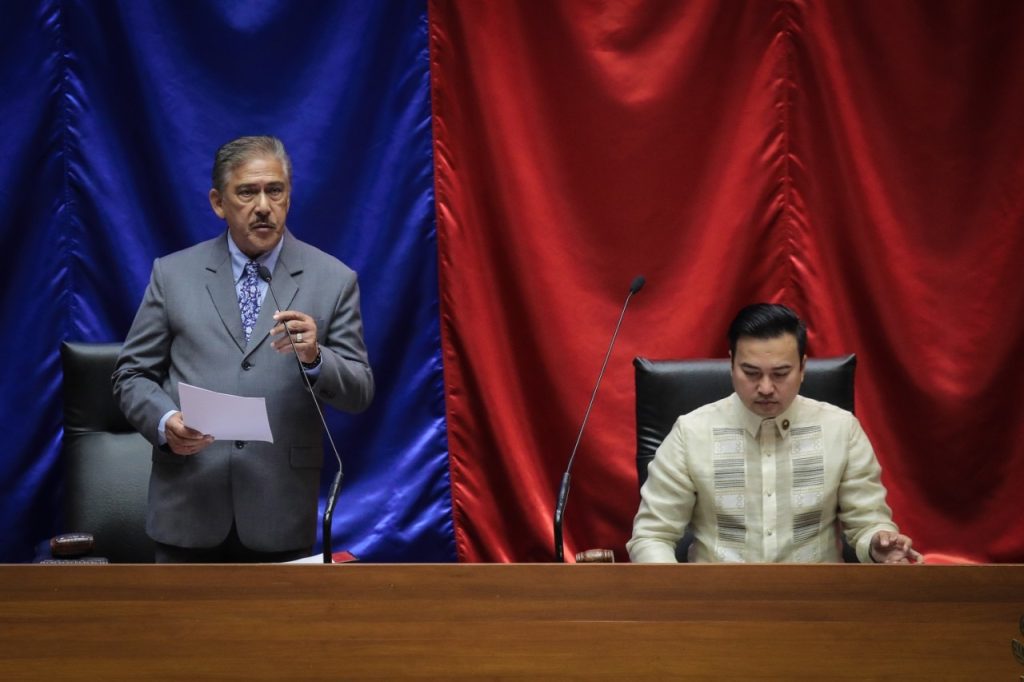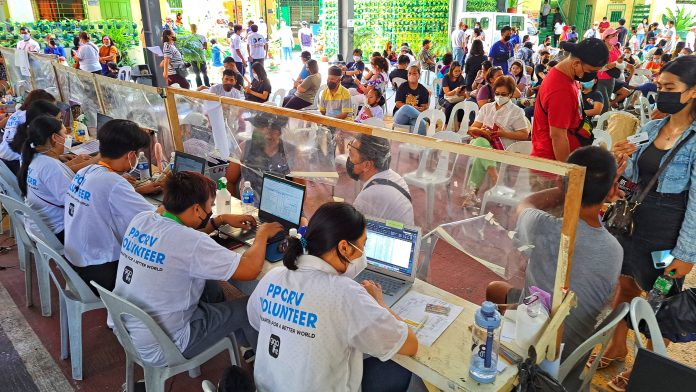The Parish Pastoral Council for Responsible Voting (PPCRV) will continue its manual validation of election returns even after it ended its operations at the University of Santo Tomas in Manila last week.
“As long as we continue receiving election returns, we shall continue our manual validation … to ensure that there has been no fraud in the electronic transmission,” read a message from the poll watchdog.
“Please rest assured that PPCRV will be the first to call out any irregularity we find on these election returns, as we continue to do our work,” it said, adding that its operations will continue in its headquarters at the Pope Pius XII Catholic Center in Manila.
The PPCRV still have 14,438 election returns to manually audit from several areas in the country and abroad.
The Church-based poll watchdog has earlier reported that it found several physical copies of election returns whose vote count did not match the digitally transmitted results of the May 9 elections.
PPCRV spokesperson Vann dela Cruz, however, said the discrepancies in the tabulations involved “one or two votes” for candidates for president, vice president and some senatorial candidates.
He said the numbers will not affect the over 31-million vote lead of former senator Ferdinand Marcos Jr. over his main rival in the presidential race, Vice President Leni Robredo.
“Our volunteers found four election returns that do not match with their electronically transmitted counterparts,” said Dela Cruz in a media briefing on Friday, May 20.
He said the revalidation errors were mainly caused by typographical mistakes and unreadable figures in the copies.
The poll watchdog, meanwhile, thanked the University of Santo Tomas for hosting its operations.
“We want to thank our host – the University of Santo Tomas – who has so generously allowed us to use their beautiful Quadricentennial Pavilion. Thank you, UST, for giving PPCRV a beautiful home for the 2022 National and Local Elections!” read the group’s message.
The group also thanked its volunteers from the 86 Catholic dioceses across the country who ensured the conduct of safe, clean, and peaceful elections.
In Manila, up to 10,000 people volunteered during the manual audit over the past 12 days.
“We thank the volunteer mathematicians and statisticians of the different universities, namely, Ateneo de Manila University, De La Salle University, University of the Philippines, University of Santo Tomas, and Far Eastern University, as they analyzed the data of the Transparency Servers that we shared with them, to ensure additional layers of the audit,” said PPCRV.

Congress starts canvass of votes
On Tuesday, May 24, the Philippine Congress convened as the National Board of Canvassers in a joint session to tally the votes for the 2022 presidential and vice-presidential elections.
Speaker Lord Allan Velasco and Senate President Vicente Sotto III served as presiding officers during the joint session.
“We owe our presence here today to the fact that we are the chosen representatives of our people, acting as one body, to ensure that the will of the people in choosing the two highest officials of our country is respected,” Velasco said in his opening remarks.
Each chamber formally created a contingent to the Joint Committee that will do the actual count of votes cast for President and Vice President during the May 9 polls.
According to the rules of the joint public session, the Senate President shall open, in the order they were received, all electronically transmitted certificates of canvass in the Consolidation and Canvassing System and all manually counted and physically delivered CoCs not electronically transmitted in the CCS.
The Joint Committee shall decide all questions and issues raised involving the CoCs by a majority vote of its members, each panel voting separately.
In case the two panels disagree, the decision of the chairperson shall prevail. In case of a deadlock, the matter shall be resolved by the Speaker and the Senate President.
Once the canvassing is completed, the joint committee report shall be approved and signed by a majority of the members of the Joint Committee.
The report shall be approved and signed by a majority of the members of the Joint Committee. Each panel will vote separately.
After which, the report shall be submitted to the joint public session for consideration and approval. A majority of senators and House members, voting separately, shall approve the report and adopt the resolution of both chambers proclaiming the duly elected President and Vice President.
Under Article VII, Section 4 of the 1987 Constitution, the Senate and the House of Representatives, in joint public session, will canvass the votes for the presidential and vice-presidential elections, upon determination of the authenticity and due execution thereof in the manner provided by law. – with a report from the Philippine News Agency









